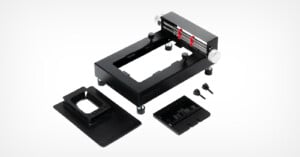
Valoi Advancer 2 Offers Quality-of-Life Improvements for Film Photographers
Valoi has updated its Advancer film digitization tool with a new model packed with numerous user-requested quality-of-life improvements.

Valoi has updated its Advancer film digitization tool with a new model packed with numerous user-requested quality-of-life improvements.
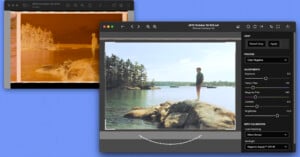
Develop and Fix, the developer of the FilmLab series of film digitizing software, has announced the latest generation of the platform: FilmLab 3. The company says that it introduces new versions of the scanning algorithms and is up to four times faster.
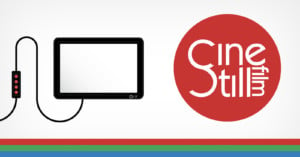
The CineStill CS-Lite is designed to provide film photographers with higher-quality light output and improved color management for scanning 35mm and medium format film with a digital camera.
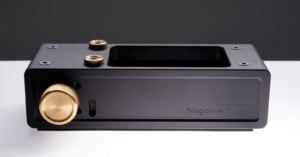
Negative Supply has announced the successor to the Film Carrier MK1, the Pro Film Carrier 35. It is billed as an affordable and professional tool capable of scanning all 35-millimeter film formats (including half frame, full frame, and panoramic sizes) in a single capture while maximizing film flatness.
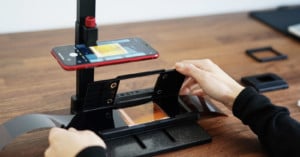
Lomography has announced two new film scanning kits -- The DigitaLIZA+ and DigitaLIZA Max -- that take advantage of either a digital camera or a smartphone to allow for a super-simple tabletop process.
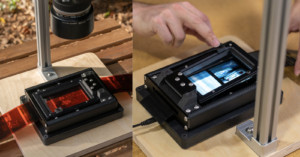
Negative Supply has announced the Basic Film Carrier 120 which it bills as an affordable, accessible option for easily obtaining professional medium format film scans at home, on the go, or in the studio.
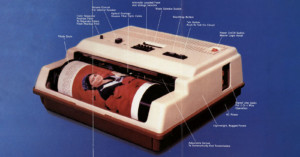
Thanks to advancements in modern technology, photojournalists can have a near-instantaneous connection with agencies and outlets with very little downtime between when a photo is captured and when it is published. But it wasn't always like this.
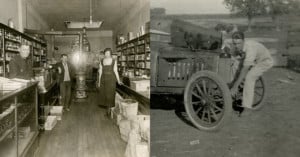
A Wyoming-based photographer has uncovered a large collection of family photographs taken throughout the 20th century and digitized them to reveal and preserve the everyday lives of past generations.
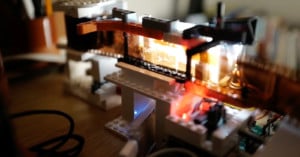
Industrious designer Benjamin Bezine has created a Raspberry Pi-powered film scanner that combines with a film advancer made from Lego and a mirrorless camera that along with machine learning automatically scans whole rolls of film.
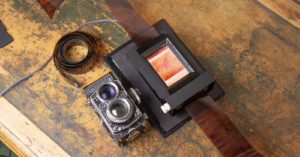
The Valoi 360 is a system of modular tools that aims to make it much easier and cheaper to digitize 35mm or 120 film negatives using a digital camera. It's made to be faster and more effective than a flatbed scanner.
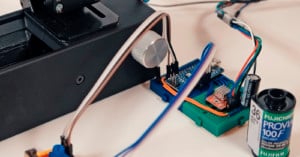
Waiting while flatbed scanners scan a color negative film is nothing to be excited about. This process and the subsequent color precorrection can take anywhere from an hour to two.
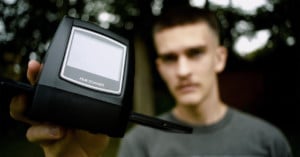
Photographer and YouTuber George Muncey of Negative Feedback recently set out on an ill-fated adventure in film scanning. He went out and bought the cheapest 35mm film scanner he could find online—the DIGITNOW! 135, which costs a whopping $60 on Amazon—and tried it out so that you don't have to.
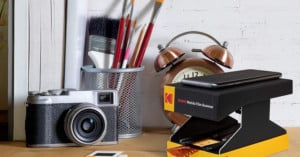
If you're looking for the cheapest possible way to digitize your 35mm Negatives and Slides, the Kodak Mobile Film Scanner is probably it. Costing just $40, this cardboard contraption lets you digitize 35mm film using just your smartphone and a couple of AA batteries.
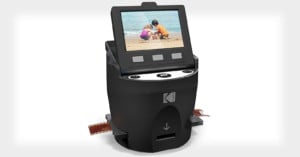
Kodak has announced a new budget film scanner called the Scanza. Designed for consumers, the scanner can digitize a number of different film formats, from 35mm still photos to 8mm motion picture film.
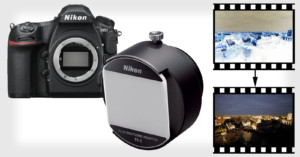
Nikon's new D850 is more than a fast and powerful full-frame DSLR -- it can double as a 45.7-megapixel film scanner as well. It's the first Nikon camera to feature a new built-in Negative Digitizing feature. To use it, you'll also need the new Nikon ES-2 Film Digitizing Adapter.
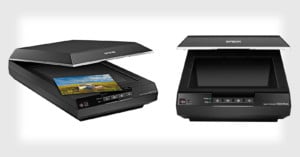
Scanning film is probably the least attractive part of shooting film, but that doesn't mean you should neglect this stage. Nowadays, we all want to share our analog images online, and the only way to do that is by digitizing our negatives one way or another.
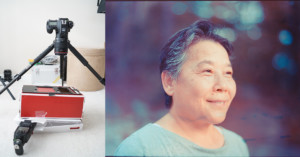
Unless you have the dough to get a lab scanner, it is a painful process to scan your own film. Luckily one day all the photo labs dumped their Pakon F-135 to the market, and I remember you could get one for ~$250 a pop.
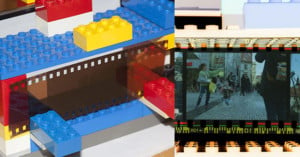
Want to scan some film but don't have a scanner handy? You can actually do some high quality digitization using some LEGO blocks, a smartphone or tablet, and a camera with decent resolution. Filmmaker Zachary Antell uses a method using those components, and his results are pretty impressive.
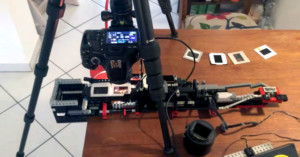
This is pretty impressive: photographer Pascal Kulcsar needed to digitize some old slide film left behind by his grandfather. Rather than purchase a film scanner, Kulcsar decided to combine his technical ingenuity and love for LEGOs to create a DIY slide film scanner using LEGO pieces.
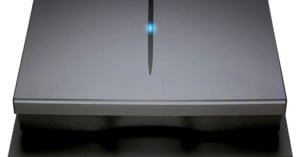
Film is making something of a comeback. Sure, certain film stocks are still disappearing and being discontinued, but other companies are coming back from the dead, new companies are releasing new and exciting film, and now, Epson just decided to update two 8-year-old multi-format film scanners by releasing two new models.
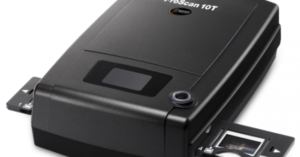
For those of you who, like me, enjoy shooting film on occasion but keep a predominately digital workflow, German company Reflecta has a new 35mm film scanner on the way that will blow away almost any other consumer-level scanner you're going to find.
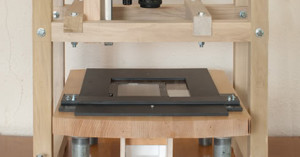
Consumer film scanners don't provide enough detail, and professional models require too much money and pampering. What's a dedicated film nerd to do? For Peter De Smidt, the answer was to build his own high-res scanner using the Nikon D600 and 50mm Micro lens he already had on hand, a bit of lumber and a lot of patience.
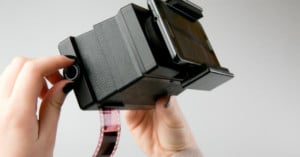
Lomography (the movement) has been called many things, including "analog Instagram;" but regardless of how you feel about the movement or the company that bears its name, it seems that Lomography (the company) has been one of the driving forces keeping film photography alive and interesting for the masses.
The company's newest project, up for your pledging pleasure on Kickstarter, is the Smartphone Film Scanner. It's exactly what it sounds like: an attachment that allows you to photographically scan your 35mm film using your phone.
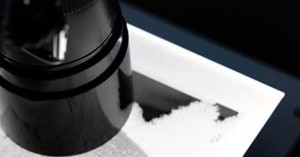
Yesterday I wrote a post showing the high level of image quality you can achieve by scanning film using a digital camera rather than a film scanner. This post will describe my personal technique for digitizing film using a DSLR and a macro lens.
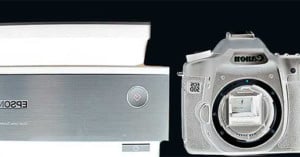
If you shoot film and aren't much into chemicals (or don’t have a basement in which to keep a gigantic 5×7″ enlarger), you’ll soon find yourself needing a way to import those beautiful pictures you’ve taken onto your computer. What? Why didn’t I say, “you'll need a scanner”? After all, it’s not 1987 anymore -- scanners are as common as toaster ovens.
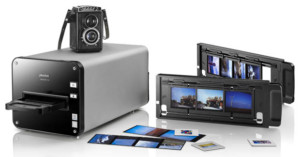
One of the latest entrants in the at-home film scanning game is the Plustek OpticFilm 120. Just announced a few months ago and made available for pre-orders earlier this month, the OpticFilm 120 is a professional caliber scanner that can digitize both 35mm and 120mm medium format film. With a price tag of $2,000, it's not exactly wallet-friendly for the average film shooter, but is quite affordable when compared to other medium-format pro-grade scanners on the market.
If you've been wondering about the image quality of the scanner (and whether or not it stacks up well against your local photo lab), Plustek has released a few full-resolution untouched scans.